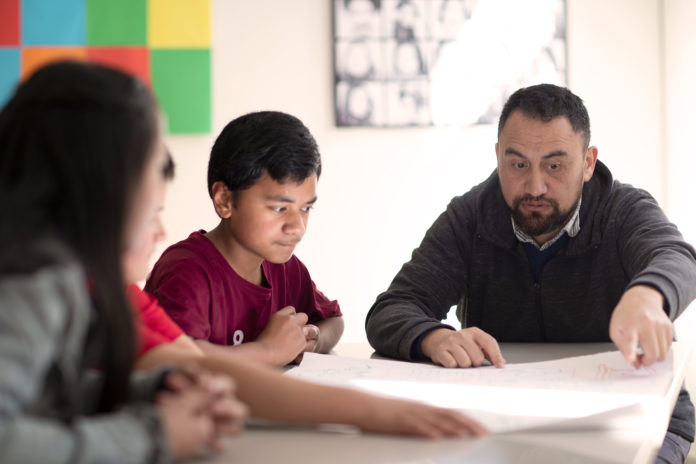In this special Q&A, we speak to the Tertiary Education Commission about its Inspiring the Future programme.

Q: Tell us about the vision for the programme?
A: The Tertiary Education Commission (TEC) is launching a new programme to broaden career horizons by exploring the ways that unconscious bias, gender and ethnicity stereotypes and a range of other factors influence the way New Zealand school students think about their futures. The programme aims to challenge stereotypes that can limit their potential.
The Inspiring the Future programme includes Drawing the Future, which is a research campaign into the career aspirations of New Zealanders aged seven to 13.
In-school and online events provide students with a broader view of their job options and future work possibilities, by bringing a diverse range of role models into schools to talk about their jobs, how those people got started and any challenges they had to overcome along the way.
Q: What local and overseas research is the programme based on?
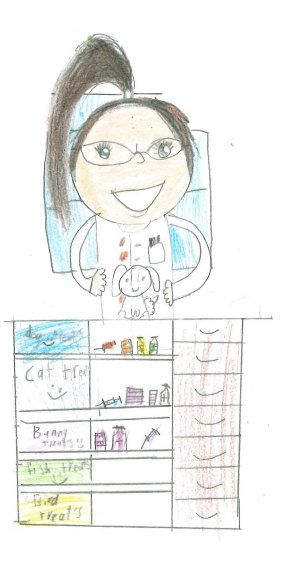
A: Inspiring the Future is based on a UK programme, developed by UK-based NGO Education and Employers, and has been shaped to meet the needs of New Zealand children.
The programme is underpinned by the results of the New Zealand Drawing the Future research report that was released in 2020 and asked primary and intermediate students to draw what they wanted to be when they grew up.
The results highlighted the narrow career aspirations of students across New Zealand. Most of the students who took part in the research aspire to one of just nine jobs. Less than 1% of young people knew about their preferred job from someone visiting their school from the world of work.
The report is available here – https://www.tec.govt.nz/assets/Publications-and-others/TEC-Drawing-the-Future-Report-v2.pdf
The research completed by Education and Employers in the UK also points to a link between young people’s career aspirations and the jobs they end up doing as adults.

Q: How will Inspiring the Future integrate with current school curriculums?
A: The TEC worked closely with the Ministry of Education, CATE, CDANZ and Principle Association NZ to ensure Inspiring the Future supports schools to deliver the New Zealand curriculum.
A key competency for students of this age is developing their sense of self, and Inspiring the Future events aim to get students thinking about what they like doing, what they’re good at and what their values are.
Other examples of areas Inspiring the Future supports developing are diversity, inquiry and curiosity, equity, community and participation, and communication. In addition, there are pre-event and post-event activities which help deliver certain areas of the curriculum and add value to the Inspiring the Future event.
Inspiring the Future events can also be adapted by schools to help them deliver a certain area of the curriculum, for example during science week a school could invite role models in scientific jobs.

Q: What career stereotypes currently exist among New Zealand’s student base?
A: The Drawing the Future report identified patterns of unconscious ethnic, gender, and socio-economic bias that often limit young people’s career aspirations and choices.
The report shows apparent gender bias with boys being more likely to choose builder, engineer and farmer; while girls are more likely to choose teacher, artist, actor or singer. These results are consistent with similar research done in the UK.
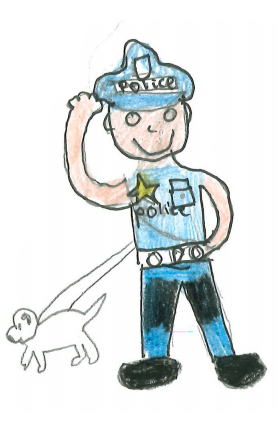
New Zealand aspirations differ from other countries. Sportsperson is number one for both boys and girls – almost three times more popular than a vet or a police officer (second and third most popular). Farming is also featured in the top 10 job choices for both genders.
Māori students are the most likely to aspire to be sportspeople, but are less likely to be interested in science or technology-related jobs. Pacific students are more than twice as likely as others to want to be police officers, and less likely to aspire to be an IT consultant, programmer or technician.
Students from higher-decile schools were more likely to aspire to higher earning and professional careers compared to students from lower-decile schools.
The research identifies gaps that are important to New Zealand, for example only two in ten New Zealand young people aspired to a science, technology, engineering or maths (STEM) related career.
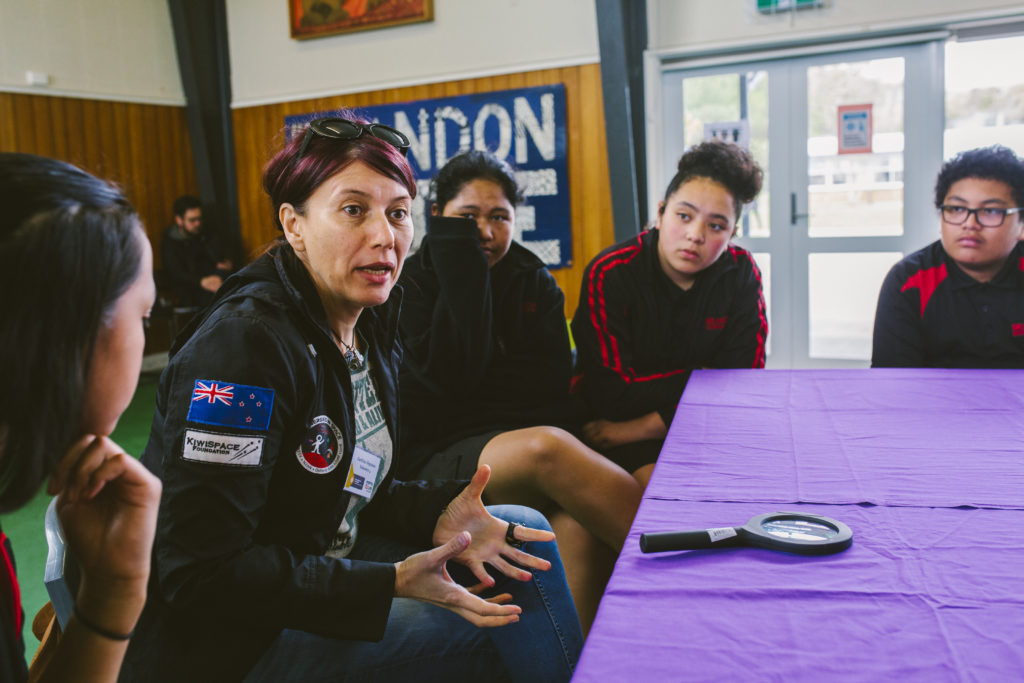
Q: Who can become a role model for the programme?
A: Anyone can sign up to volunteer as a role model. The programme needs a range of people from different jobs and different walks of life. Diversity and inclusion are integral to the success of Inspiring the Future to help break the stereotypes and to make an impact on all children.
Once someone passes a standard criminal record check, they become an Inspiring the Future role model, and will be available on the online platform for teachers to invite to events.
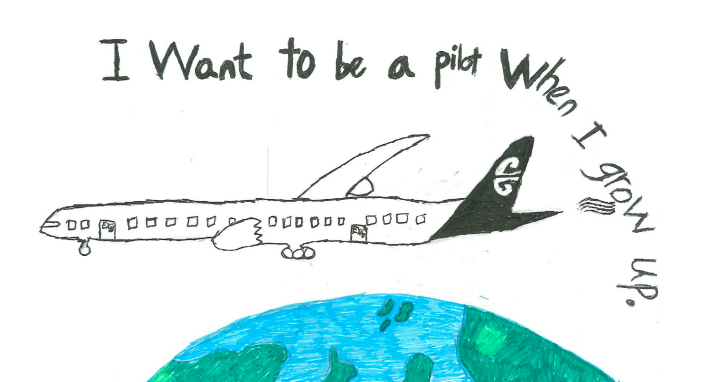
Q: How many role models are needed for the programme?
A: TEC is putting out the call for community role models to volunteer to help inspire primary and intermediate students. Anyone can be a role model who is willing to talk about the work they do, how they got started, the challenges they faced along the way, and why they love doing what they do.
The more role models sign up to Inspiring the Future the broader range of possibilities – 10,000 role models can touch 100,000 young people’s lives!
Q: What is the commitment required from role models who take part?
A: The programme brings role models from different industries to schools in a fun and interactive event.
Schools invite role models to their events on the Inspiring the Future online platform. There are both in-person and online Inspiring the Future event options. In-person events last approximately 4-5 hours, plus some time to prepare; role models are provided with guides. Online events last 1-2 hours, plus a half-hour pre-meet and some time to prepare. Role models can accept or decline invitations if it doesn’t suit their availability.
At the event role models talk to students about their jobs and the study, training and any challenges faced along the way. Through a question and answer session, students try to guess what the role models do, followed by the big reveal of their actual job. The event finishes with an interactive session where role models talk more in depth about their job, why they do what they do and how they got there.
Q: What are some examples of role models in the programme who have broken down vocational stereotypes?
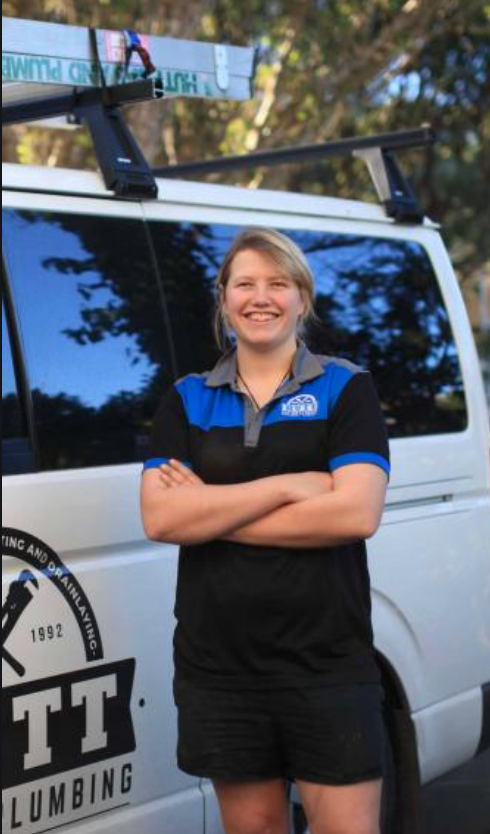
A: At the Drawing the Future report launch event last year, TEC invited role models to talk about how what they do breaks the gender stereotypes that many New Zealand students have about the world of work. The event was attended by: Paris, a female builder from a family of hairdressers; Dominic and Eden, male dancers from Wellington School of Dance; Commander Sarah, a female weapons engineer from the NZ Army.
Another role model example is Nikita Ward (pictured, right), a young, female plumber who attended one of the Inspiring the Future trial events last year. She won the ‘Highly Commended Student or Apprentice’ award in the National Association for Women in Construction Awards. She surprised students when she revealed she was a plumber.

Q: Who will the programme be open to?
A: People from all areas of New Zealand can sign up and share their stories. Students want to hear real stories about real jobs from local people they can relate to. We need a wide pool of role models to represent the wide range of jobs that New Zealanders do, many of which may not be visible in some communities.
Inspiring the Future will be available to all primary and intermediate schools and kura across New Zealand in Term 2. It is aimed at students between 7 and 13 years of age.

Q: What did the Drawing the Future national survey tell you about students in NZ schools?
A: The Drawing the Future results showed very narrow career aspirations at this age. More than half of all students aspired to one of only nine jobs!
These were sportsperson – way ahead at almost 17% – veterinarian, police officer, teacher, social media influencer, artist, doctor, military or firefighter, and farmer.
We want to inspire students by showing them a much broader range of possibilities and how they can get there.
Q: How can potential role models sign up for the programme?
A: People can sign up to become a role model now at https://www.inspiringthefuture.org.nz/en_nz/sign-up/role-models
Inspiring the Future will be open to primary and intermediate schools in Term 2. Schools will be able to set up events and invite role models. Schools can express their interest now and TEC will let them know when they can start setting up events https://www.inspiringthefuture.org.nz/en_nz/contact/

Q: How will you assess and record its progress or success?
A: The TEC is currently developing measures to evaluate the effectiveness of the programme. The measures will be linked to the TEC strategic priorities to develop everyone’s skills, knowledge and confidence to find meaningful work throughout their lives.
The platform where teachers schedule events and choose role models to invite provides quantitative metrics on aspects of the programme such as the diversity of role models that students are exposed to.
As part of the follow up process for the Inspiring the Future, we encourage teachers and role models to provide feedback, which is part of the qualitative measure for the programme. For trial events there have been interviews conducted.
The pre-event and post-event activities for students are designed to provide measurement of the impact of Inspiring the Future events.
These insights are all used to continuously improve all aspects of the programme; Inspiring the Future event formats, resources for teachers and role models, the online platform journey, communications and more.

